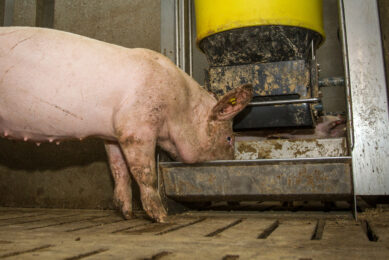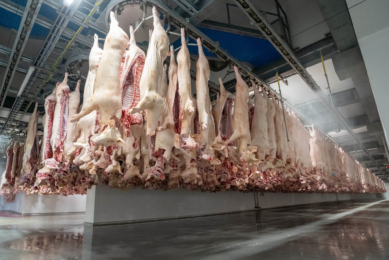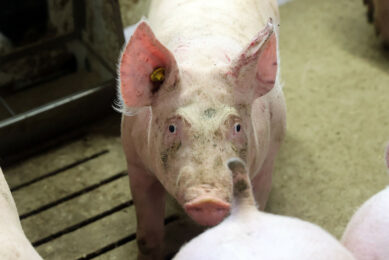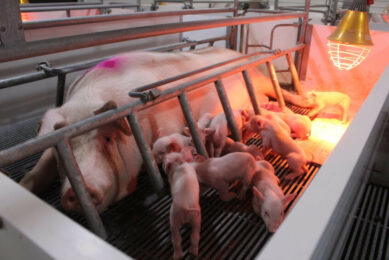Russian pig farms start investing in helmets and body armour
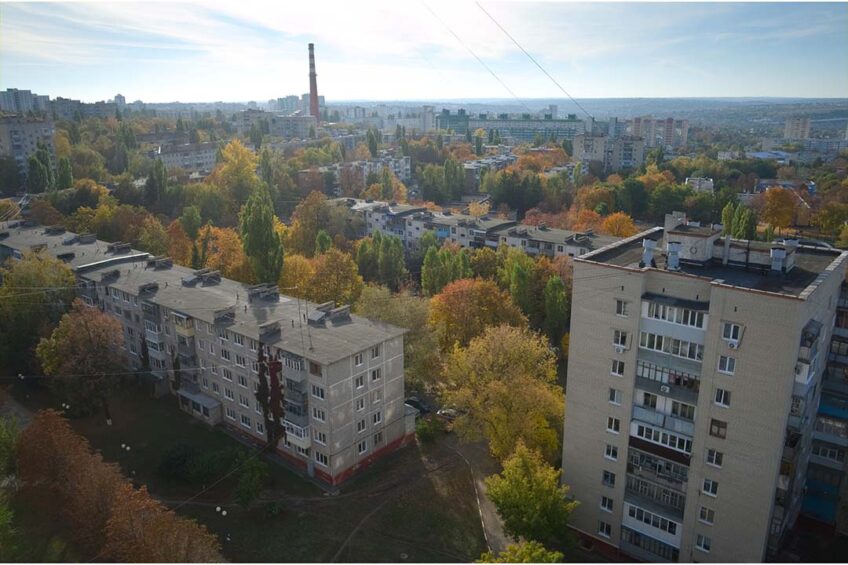
Agro-Belogorie, a prominent Russian pork manufacturer, has heavily invested in the security of its pig farms in the Belgorod region, citing continuing cross-border shelling.
Agro-Belogorie spent around 50 million ruble ($480,000) on purchasing helmets and body armour for its workers. It also installed modular reinforced concrete shelters at its production facilities, the company told local state news outlet Tass.
In addition, the company purchased a diesel generator to keep operations running in case of blackouts.
Agro-Belogorie’s capacities in the Grayvoronsky urban district and the Borisov district, both bordering Ukraine on the south, have been regularly shelled since mid-March 2024, the publication said.
Another local news outlet, Mash, has reported that one Agro-Belogorie pig farm has been struck with 4 “explosive devices,” wounding 1 employee.
Other companies take similar steps
Agro-Belogorie’s forced investments into security are not an isolated case. According to Tass, many enterprises operating in the areas affected by shelling take similar steps.
Russian pig farmers have been repeatedly voicing concerns over the cross-border shelling in Belgorod, considered to be the heart of the Russian pig industry.
Belgorod Oblast
In 2023, Belgorod Oblast manufactured 948,100 tonnes of pork in live weight, 7.8% up compared with the previous year. The regions account for roughly 18% of Russian pork production. In 2024, the target was to cross the 1 million mark, the regional government unveiled earlier this year.
RusAgro
The major Russian pork producer RusAgro has prepared a plan for the operation of its Belgorod assets in case of the Ukrainian conflict spilling into the Russian territory, Alexander Tarasov, financial director of RusAgro, said during a conference call in 2023.
A few months earlier, Vyacheslav Gladkov, governor of Belgorod Oblast, said that the region started building a defensive line on the border with Ukraine in preparation for an anticipated attack by Ukraine’s Armed Forces.
Tax benefits
The Russian government is considering establishing a special economic zone in the Belgorod, Bryansk and Kursk Oblasts, Russian Prime Minister Alexey Mishustin disclosed during a government meeting on April 5.
Mishustin explained that the rationale behind this move was to support business in the territories affected by shelling.
Companies in the special economic zone will be exempt from profit tax for the first 10 years after their business registration. In addition, they will receive a discount on some regional taxes.
The Russian government expects that this measure will not only help companies in the affected regions to lower operational costs but also to ramp up their production performance, Mishustin stated.



